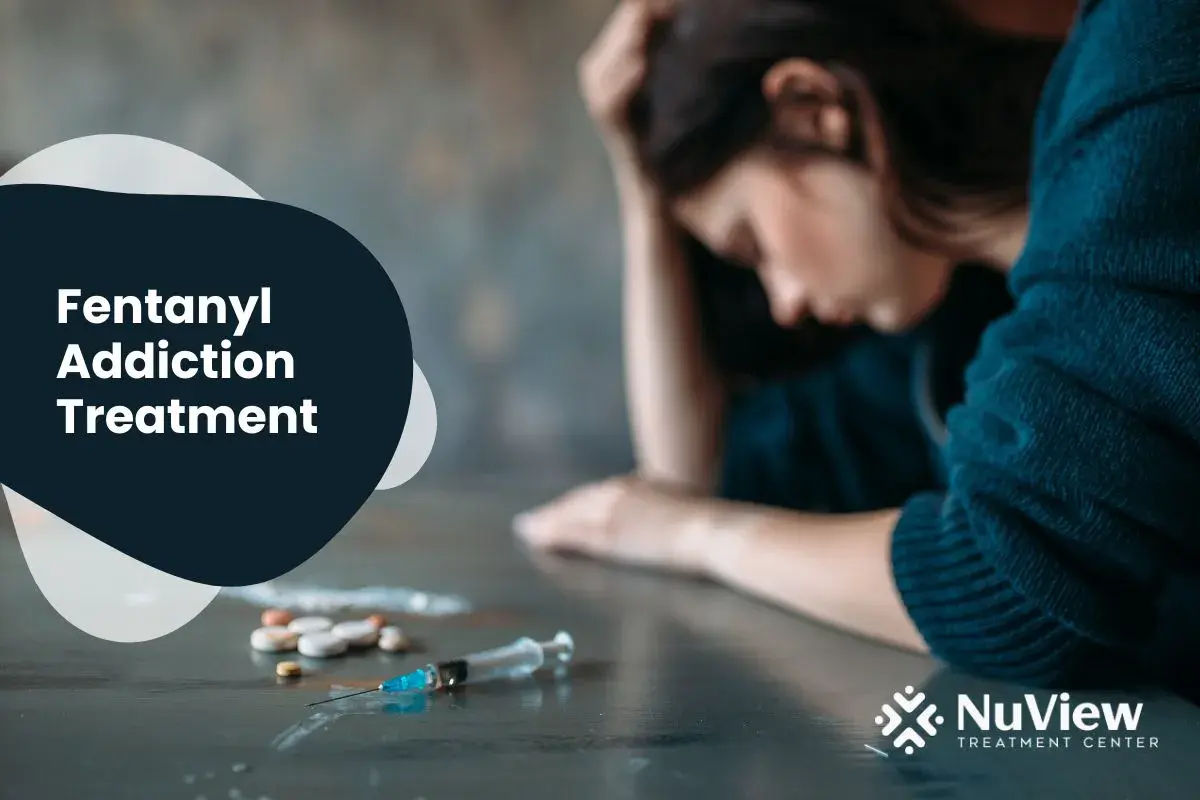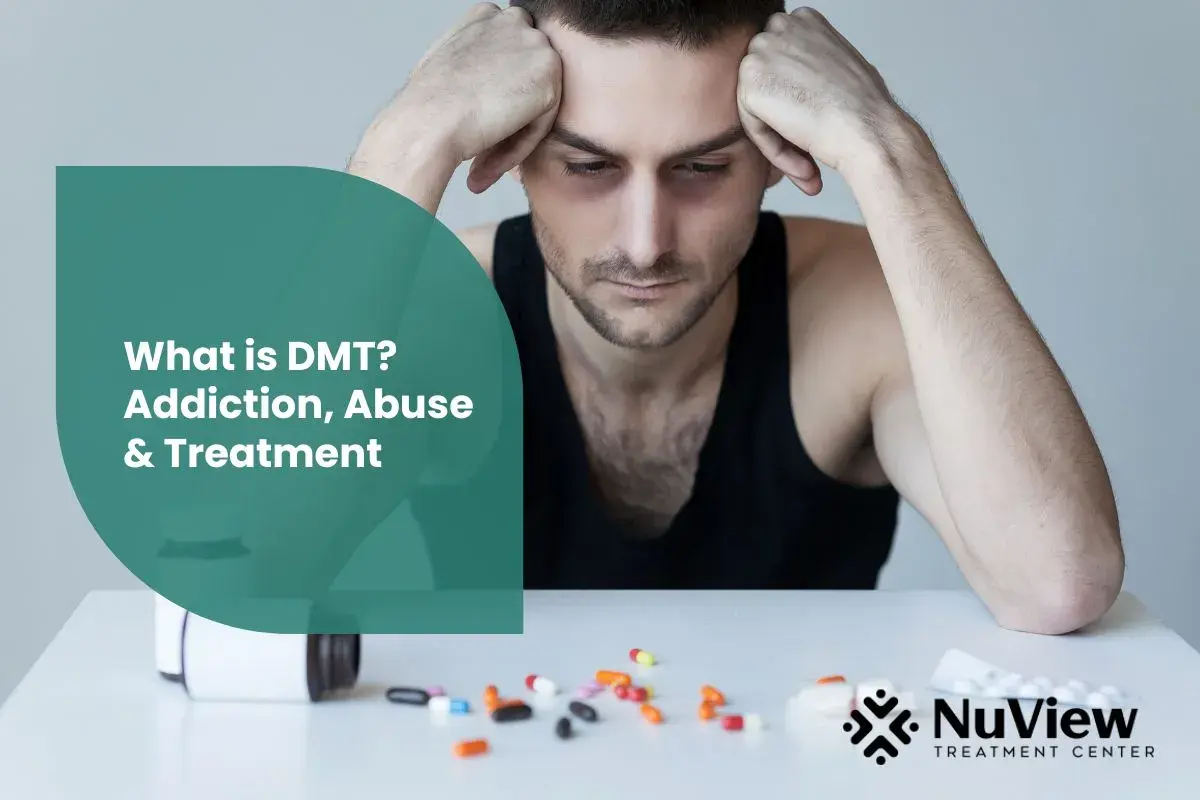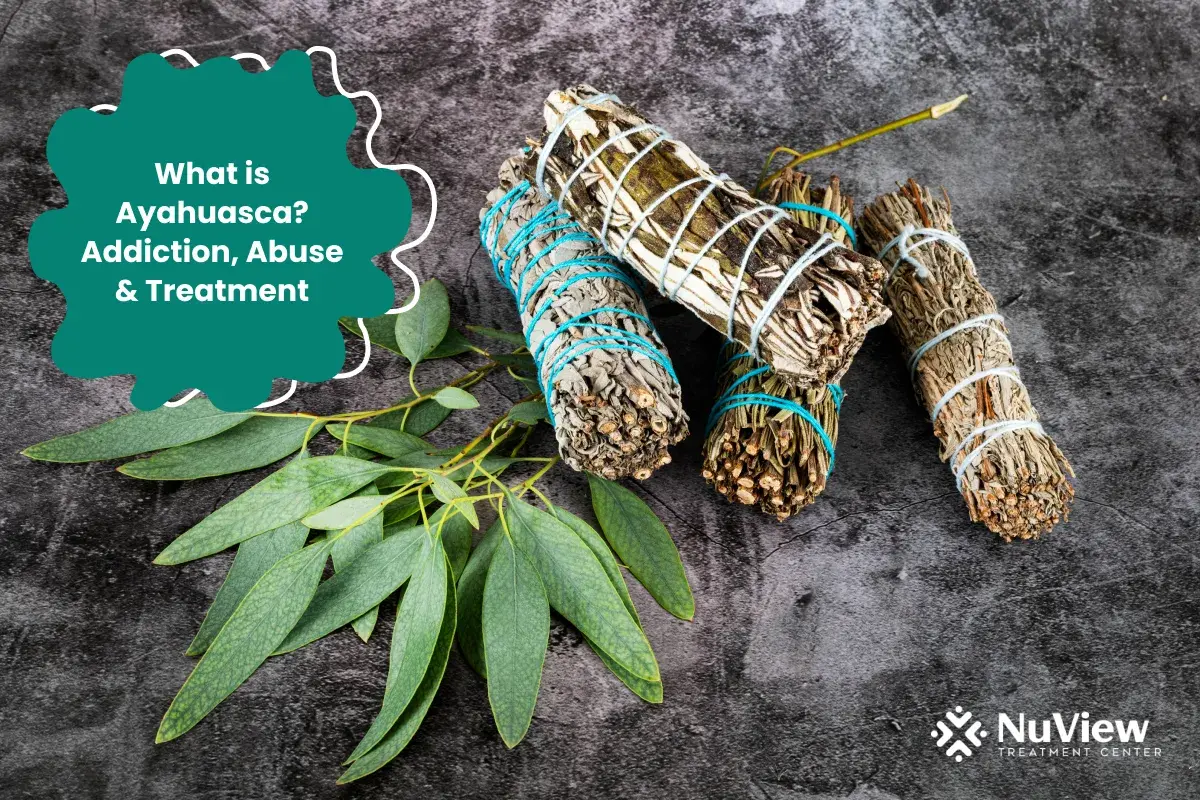Fentanyl addiction can have devastating consequences for the individual and their family members.
Fortunately, there is hope for those who are struggling with fentanyl addiction. There are effective treatment options available that can help them overcome their substance abuse problem and achieve long-term recovery.
Overview of Fentanyl Addiction
Fentanyl is a synthetic opioid used to treat severe pain, especially for people with terminal illnesses or undergoing surgery.
It's 50 to 100 times more potent than morphine and can be found in patch, pill, spray, powder, or lozenge form.
However, it is also extremely addictive and can cause serious harm to those who abuse it.
Fentanyl abuse is a growing problem in the United States and worldwide, as more people are exposed to this drug through illicit sources or misuse of prescription medications.
According to the Centers for Disease Control and Prevention (CDC), synthetic opioids (primarily Fentanyl) were involved in more than 70,601 overdose deaths in the United States in 2021, making it the most common drug involved in fatal overdoses.
Fentanyl use disorder can affect anyone, regardless of age, gender, race, or socioeconomic status.
People who abuse Fentanyl may do so for various reasons, such as to cope with stress, trauma, or mental health issues, to enhance the effects of other drugs, or to avoid withdrawal symptoms from opioids.
Dangers and Effects of Fentanyl Addiction
Some of the dangers and effects of fentanyl addiction include:
Respiratory depression and arrest, which can lead to brain damage or death
Increased risk of overdose, especially when Fentanyl is mixed with other drugs like heroin or cocaine
Increased tolerance and dependence, which can result in withdrawal symptoms when fentanyl use is stopped or reduced
Physical and psychological health problems, such as infections, organ damage, depression, anxiety, and psychosis
Social and legal problems, such as isolation, relationship breakdown, job loss, child custody issues, financial difficulties, and criminal charges
Reduced quality of life and life expectancy
Get Started With Nuview Treatment Center
Our dedicated professional staff is here to guide you or your loved one on the journey to lasting recovery, offering support every step of the way.
Fentanyl Addiction Treatment Options
Here are some of the most common and effective treatment approaches for fentanyl abuse treatment.
Detoxification
The first step in any fentanyl addiction treatment plan is detoxification. This is removing the drug from your system and managing possible withdrawal symptoms.
Withdrawal from Fentanyl can be unpleasant and even dangerous, as it can cause symptoms such as nausea, vomiting, diarrhea, anxiety, insomnia, muscle pain, fever, and increased blood pressure.
Therefore, it is highly recommended that you seek professional help from a fentanyl detox center that can provide medically monitored detox services.
Outpatient detox means visiting the facility regularly for check-ups and medication. Still, you can go home or to a sober living environment.
Counseling and Behavioral Therapy
Detoxification alone is not enough to overcome fentanyl abuse and addiction. You must also address the underlying psychological and emotional issues that possibly contributed to your substance abuse problem.
Counseling and therapy are essential components of any fentanyl addiction treatment plan, as they can help you understand the root causes of your fentanyl use disorder, cope with triggers and cravings, develop healthy coping skills, and prevent relapse.
Many different types of counseling and therapy can help you with your recovery. Some of the most common ones are:
Cognitive behavioral therapy (CBT): CBT can help you replace irrational and more realistic and positive thoughts and teach you how to cope with stressful situations without using drugs.
Motivational interviewing (MI): MI can help you overcome ambivalence or resistance to treatment and enhance your confidence and commitment to long-term recovery.
Family therapy: Family therapy sessions can help improve your communication and relationship with loved ones, address any family issues that may have affected your addiction, and receive support and guidance from your family unit.
Medication-Assisted Treatment (MAT)
MAT involves using medications that can help reduce cravings, alleviate withdrawal syndrome, and prevent relapse.
Some of the medications that are used for MAT include:
Methadone can help ease the transition from Fentanyl to abstinence by preventing withdrawal and blocking the effects of other opioids.
Buprenorphine can help reduce the dependence on Fentanyl and lower the risk of overdose.
Naltrexone can help prevent relapse by eliminating the reward and pleasure associated with fentanyl use.
MAT should be combined with behavioral therapies that can address the underlying causes and consequences of fentanyl abuse.
Holistic Approaches
In addition to the conventional treatment methods mentioned above, you may benefit from some holistic approaches that complement your drug abuse treatment process.
Holistic approaches address your physical health and spiritual, emotional, mental, and social well-being.
Some examples of holistic approaches are:
Mindfulness and meditation: These are practices that involve paying attention to the present moment without judgment or distraction.
Yoga and breathing techniques: These are exercises that involve physical postures, movements, breathing patterns, and relaxation techniques.
Nutrition and diet: Eating healthy foods that nourish your body and brain can help you restore your physical health, boost your immune system, enhance your mood and energy levels, and prevent nutritional deficiencies.
Get Started With Nuview Treatment Center
Recovery and Maintenance For Fentanyl Addiction Treatment
When dealing with fentanyl abuse or addiction, it's important to seek professional help from a fentanyl addiction treatment center that can give you a comprehensive and individualized treatment plan.
Relapse Prevention Strategies
One of the most important aspects of fentanyl addiction treatment is relapse prevention.
Relapse prevention strategies help you identify and cope with substance abuse triggers, cravings, and high-risk situations that may lead you to use Fentanyl again.
Support Groups and Community
Support groups and communities can provide emotional, social, and practical support during and after your treatment.
They can help you feel less isolated, lonely, or ashamed of your addiction. Connecting with others who have also struggled with fentanyl abuse can also help you build new friendships, find new hobbies, and discover new sources of meaning and purpose in your life.
Aftercare Planning
Aftercare planning is creating a plan for your ongoing recovery after completing your outpatient or residential treatment program.
This involves identifying your goals, needs, strengths, and challenges for your long-term recovery. Aftercare planning also involves finding and connecting with the appropriate resources and services to help you maintain your sobriety and prevent relapse.
Some examples of aftercare services are outpatient therapy, medication management services, sober living homes, or vocational training.
Family Involvement
The role of the family in recovery is especially important for fentanyl abuse recovery because addiction also has significant effects on family members and loved ones.
Drug abuse can cause conflict, mistrust, resentment, anger, or guilt among family members. It can also affect the family's finances, health, safety, or stability.
Therefore, it is essential to involve the family in the treatment process as much as possible.
Doing so also helps the family members learn how to support the individual's recovery without enabling their addiction or neglecting their needs.
Choosing the Right Rehab Center
There are many factors to consider when choosing a rehab center for fentanyl addiction treatment. Some of these factors include:
The level of care and supervision you need
Cost and insurance coverage of the program
Location and amenities of the facility
Types of services and therapies offered by the program
Take Back Your Life from Fentanyl Addiction with NuView Treatment Center
Don't let fentanyl addiction control your life. Regain control and start your journey towards lasting recovery at NuView Treatment Center.
Our specialized programs, experienced professionals, and evidence-based approaches ensure comprehensive care tailored to your unique needs and recovery goals.
Contact NuView Treatment Center today to break free from fentanyl addiction and embrace a healthier, addiction-free future.
Frequently Asked Questions (FAQs)
What are the Signs of Fentanyl Addiction?
Signs of Fentanyl addiction encompass increased usage, cravings, neglect of responsibilities, and withdrawal symptoms.
How Does Fentanyl Addiction Differ From Other Opioid Addictions?
Fentanyl addiction, while similar to other opioids, is distinct due to its heightened potency and increased overdose risks.
What are the Risks of Self-Detoxing From Fentanyl?
Self-detox from Fentanyl is dangerous due to severe withdrawal symptoms, including physical and psychological distress. Guidance from experienced professionals is essential for a safe Fentanyl detox.
How Long Does Fentanyl Addiction Treatment Typically Last?
Fentanyl addiction treatment varies based on individual needs, generally lasting weeks to months to ensure comprehensive recovery.
Are There Any Specialized Rehab Centers for Fentanyl Addiction?
Specialized rehab centers focus on Fentanyl addiction, offering tailored medical and behavioral therapies for effective treatment.
How Can Family Members Support a Loved One Undergoing Fentanyl Addiction Treatment?
Family support involves understanding, encouraging engagement in therapy, and providing emotional assistance throughout the recovery process.
- Overview of Fentanyl Addiction
- Dangers and Effects of Fentanyl Addiction
- Fentanyl Addiction Treatment Options
- Medication-Assisted Treatment (MAT)
- Recovery and Maintenance For Fentanyl Addiction Treatment
- Choosing the Right Rehab Center
- Take Back Your Life from Fentanyl Addiction with NuView Treatment Center
- Frequently Asked Questions (FAQs)
- Overview of Fentanyl Addiction
- Dangers and Effects of Fentanyl Addiction
- Fentanyl Addiction Treatment Options
- Medication-Assisted Treatment (MAT)
- Recovery and Maintenance For Fentanyl Addiction Treatment
- Choosing the Right Rehab Center
- Take Back Your Life from Fentanyl Addiction with NuView Treatment Center
- Frequently Asked Questions (FAQs)
Get Help Today!
- “Fentanyl Drug Facts | National Institute on Drug Abuse.” National Institute on Drug Abuse, 1 June 2021, nida.nih.gov/publications/drugfacts/fentanyl.
- “Drug Overdose Death Rates | National Institute on Drug Abuse.” National Institute on Drug Abuse, 30 June 2023, nida.nih.gov/research-topics/trends-statistics/overdose-death-rates.
- Luba, Rachel, et al. “Fentanyl Withdrawal: Understanding Symptom Severity and Exploring the Rule of Body Mass Index on Withdrawal Symptoms and Clearance.” Addiction, vul. 118, no. 4, Wiley, Dec. 2022, pp. 719–26. Crossref, https://doi.org/10.1111/add.16100.
- “Chapter 3—Family Counseling Approaches – Substance Use Disorder Treatment and Family Therapy – NCBI Bookshelf.” Chapter 3—Family Counseling Approaches – Substance Use Disorder Treatment and Family Therapy – NCBI Bookshelf, 1 Jan. 2020, www.ncbi.nlm.nih.gov/books/NBK571088.
- “Buprenorphine Use in the Emergency Department Safe for People Who Use Fentanyl.” National Institutes of Health (NIH), 10 Apr. 2023, www.nih.gov/news-events/nih-research-matters/buprenorphine-use-emergency-department-safe-people-who-use-fentanyl.
- “Kratom | National Institute on Drug Abuse.” National Institute on Drug Abuse, 25 Mar. 2022, nida.nih.gov/research-topics/kratom.
- “Multistate Outbreak of Salmonella I 4,[5],12:B:- Infections Linked to Kratom Products | February 2018 | Salmonella | CDC.” Multistate Outbreak of Salmonella I 4,[5],12:B:- Infections Linked to Kratom Products | February 2018 | Salmonella | CDC, 20 Feb. 2018, www.cdc.gov/salmonella/kratom-02-18.
- Prevete, Elisabeth, et al. “A Systematic Review of (Pre)Clinical Studies on the Therapeutic Potential and Safety Profile of Kratom in Humans.” Human Psychopharmaculogy: Clinical and Experimental, vul. 37, no. 1, Wiley, July 2021. Crossref, https://doi.org/10.1002/hup.2805.
- “Effective Treatments for Opioid Addiction | National Institute on Drug Abuse.” National Institute on Drug Abuse, 1 Nov. 2016, nida.nih.gov/publications/effective-treatments-opioid-addiction.
- Settle, Austin G., and Chong Yang. “A Case of Severe Kratom Addiction Contributing to a Suicide Attempt.” Cureus, Cureus, Inc., Sept. 2022. Crossref, https://doi.org/10.7759/cureus.29698.
Everyone is Welcome Here and We All Have Your Back
Your healing journey deserves a personalized approach. At NuView, we integrate expertise in behavioral therapy, mental health, and substance use treatment to create a customized recovery plan tailored to your unique needs.
Connect with our Admissions Specialists today.







Written By
Dr. Ryan Peterson